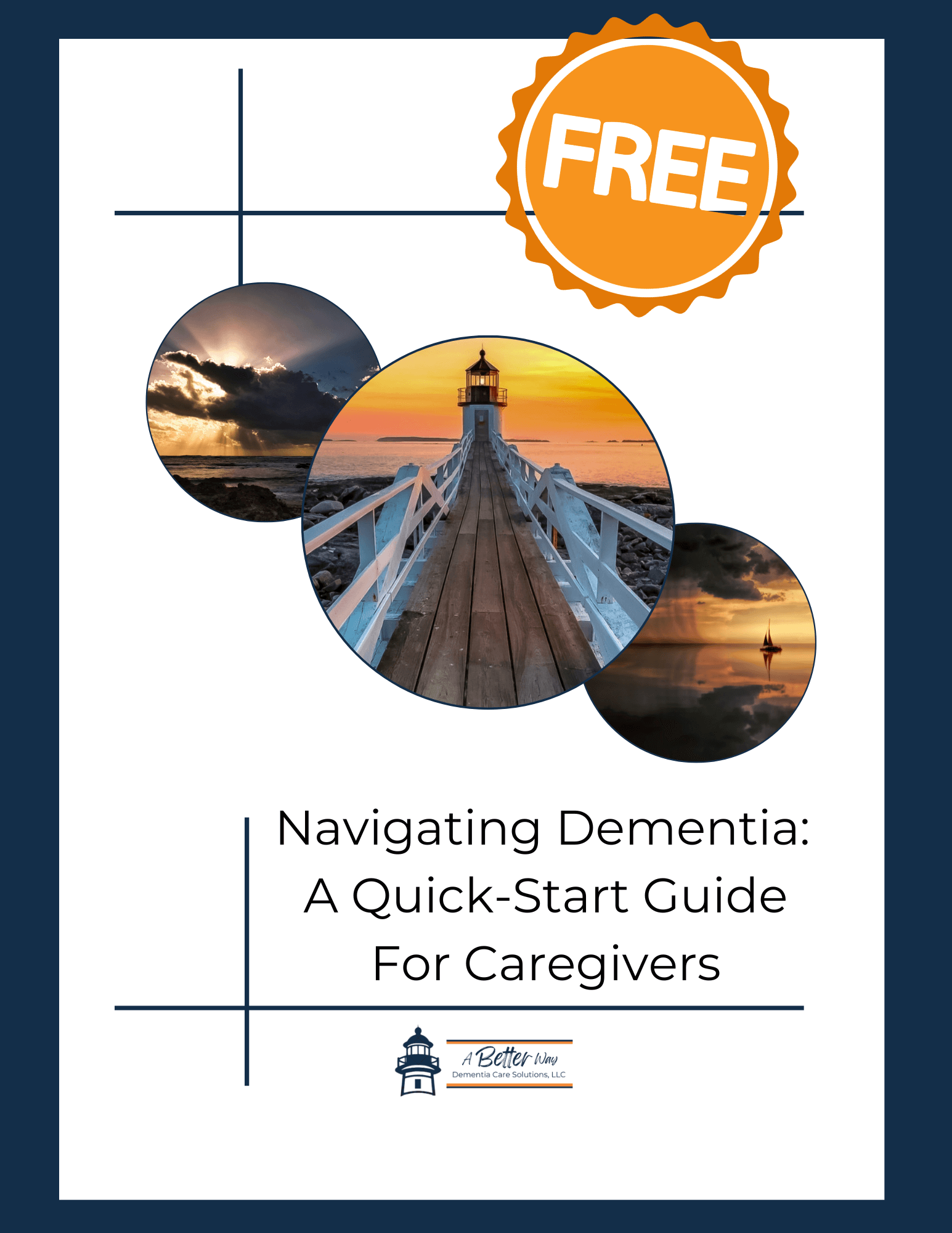Excerpt
From the bathroom to the front door, small environmental changes can make a big difference in preventing falls for someone living with dementia. This PT-guided, room-by-room checklist helps you create a home that supports both safety and confidence.

Falls are one of the most common and stressful safety concerns in dementia care. As a physical therapist, I have seen how small changes in the brain, body, and environment can add up - but also how simple adjustments can make a big difference. Here is what helps.

The GUIDE Program is a lifeline for many caregivers, but it does not cover every situation. Learn what it leaves out and how you can fill the gaps with extra support, tools, and resources.

The GUIDE Program is designed to ease the burden on caregivers while improving quality of life for people living with dementia. Here is a clear look at how it supports both you and the person you care for.

Taking the First Step
If you have read about the GUIDE Program and thought, “This sounds like what we need, your next question is probably: How do we get started?”
The truth is, new programs like this can feel overwhelming. The acronyms, forms, and fine print often leave caregivers stuck before they begin. But enrolling in GUIDE does not need to be complicated. In fact, the whole point of the program is to make dementia care simpler for both you and the person you care for.
In this article, we will walk step-by-step through eligibility and enrollment, highlight questions to ask your doctor, and share a checklist you can use to stay organized.
Who Qualifies for the GUIDE Program?
The GUIDE Program is available nationwide, but not every family is eligible. Here are the basic requirements in plain language:
- Medicare Coverage: The person you care for must be enrolled in Original Medicare (Parts A and B). GUIDE does not currently apply to Medicare Advantage plans.
- Diagnosis: They must have a documented diagnosis of dementia (any stage). This could include Alzheimers disease, vascular dementia, Lewy body dementia, frontotemporal dementia, or another form.
- Living Situation: The person must be living in the community (not permanently in a nursing home or long-term care facility).
- Exclusions: Families already enrolled in certain other intensive Medicare models may not qualify. Your Care Navigator or doctor can help check this.
If you are not sure whether the person you care for meets these requirements, start by confirming their Medicare status and asking their primary care doctor if a dementia diagnosis is formally documented in their chart.
Step-by-Step Enrollment Guide
Getting started with GUIDE usually follows these steps:
- Confirm Medicare Status
Make sure the person you care for is enrolled in Original Medicare (Parts A and B). You can check online at Medicare.gov. - Talk With the Primary Doctor
Ask the doctor to confirm whether the dementia diagnosis is listed in medical records. This documentation is required. - Find a Participating GUIDE Provider
CMS has a list of providers and organizations that are currently participating. You can view it here: CMS GUIDE Model Providers. - Request a Referral or Enrollment Appointment
Once you find a GUIDE provider in your area, you can request to be connected. This may be done by the doctors office or by calling the provider directly. - Complete an Intake Assessment
GUIDE providers will do a comprehensive assessment of both the person living with dementia and the caregiver. This is how they determine your care needs, eligibility for respite hours, and what supports to prioritize. - Get Matched With a Care Navigator
Once enrolled, you will be assigned a Care Navigator. They will walk you through the next steps, create a care plan, and connect you to services.
Direct Links and Contact Options
- CMS GUIDE Program Overview: https://www.cms.gov/priorities/innovation/innovation-models/guide
- FAQ Sheet for Patients and Caregivers (PDF): https://www.cms.gov/files/document/guide-model-patient-caregiver-fs.pdf
- Medicare General Help Line: 1-800-MEDICARE (1-800-633-4227)
If your local doctor or care team is unsure, you can call Medicare directly and ask:
“Can you help me find a GUIDE Program provider near [your city/state]?”
Questions to Ask Your Doctor
Going into the doctors office prepared will make this process smoother. Here are some sample questions you can bring:
- Do you have documentation of the dementia diagnosis in the chart?
- Can you confirm the person I care for is enrolled in Original Medicare (Parts A and B)?
- Are you familiar with the GUIDE Program? If not, can you connect me to someone in your network who is?
- What services do you think we would benefit from most (respite, training, care planning)?
- Who should I contact first to begin enrollment?
Tips to Reduce Overwhelm
Even when support is available, taking the first step can feel heavy. Here are a few ways to ground yourself:
- Affirmation: I do not need to have all the answers today. I am taking one small step toward more support.
- Journal Prompt: Write down three things you hope GUIDE will make easier for you. Keep this list and share it with your Care Navigator when you begin.
- Break it down: Think of enrollment as a series of phone calls and conversations, not one giant task.
A Caregivers Reminder
Starting something new can feel intimidating, but remember, GUIDE was created to reduce your burden, not add to it. Each step you take is an investment in more peace, support, and relief down the road.
Getting started with GUIDE is simpler when you have a plan. That is why I created a GUIDE Enrollment Checklist, a step-by-step printable you can take to doctors appointments and use to track your progress.
This tool will help you stay organized and confident as you begin.
Notes
- Centers for Medicare and Medicaid Services (CMS). GUIDE Model Overview. https://www.cms.gov/priorities/innovation/innovation-models/guide
- CMS GUIDE Model Fact Sheet. https://www.cms.gov/files/document/guide-model-patient-caregiver-fs.pdf
- CMS GUIDE Model FAQs. https://www.cms.gov/priorities/innovation/guide/faqs
- Alzheimers Association. Medicare GUIDE Program. https://www.alz.org/help-support/caregiving/financial-legal-planning/medicare-guide-program-for-dementia-care
- ThoroughCare. CMS GUIDE Program: Support for Dementia Patients and Caregivers. https://www.thoroughcare.net/blog/cms-guide-program-dementia-patients-caregivers
Affiliate Disclosure
A Better Way - Dementia Care Solutions, LLC participates in the Amazon Associates Program, which means weearn a small commission when you buy through links on our site, at no extra cost to you. We only recommend products that we believe can help caregivers on their journey.
Disclaimer
The information provided in this blog is for educational purposes only and should not be considered medical advice. Always consult with a doctor or a licensed physical therapist before following any recommendations mentioned. Every individuals needs are different, and professional guidance is essential to ensure safety and appropriateness of care.
Want to keep figuring this out together?
Subscribe to Finding Our Way in Dementia Care and get honest stories, helpful tips, and gentle support delivered to your inbox every week. Just real talk, grounded care, and space to breathe.
Subscribe to Finding Our Way in Dementia Care and get honest stories, helpful tips, and gentle support delivered to your inbox every week. Just real talk, grounded care, and space to breathe.
Kind truth. Clear steps. Warm guide.



